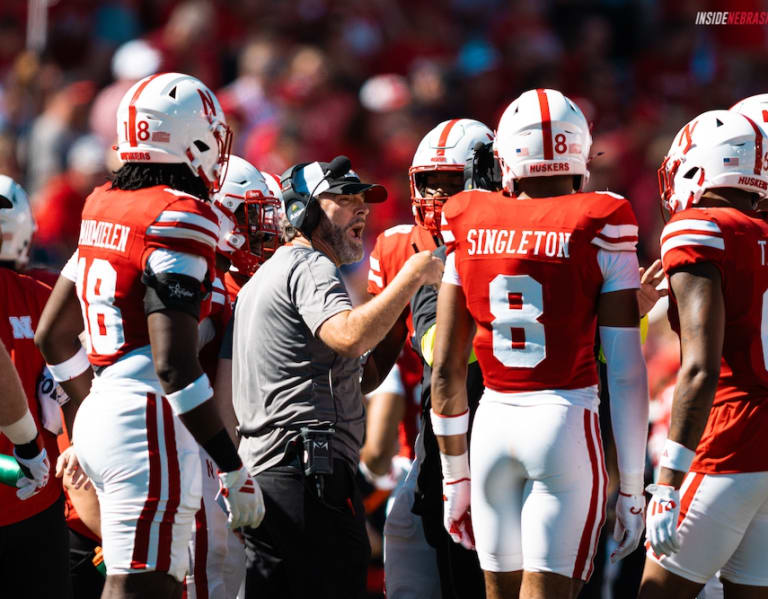
Butler on the radio: Readjusting eyes and taking the “small victories”
When John Butler showed up in Lincoln to take over for former Huskers secondary coach Evan Cooper, he needed to get used to coaching college kids — not professionals in the NFL, where he had spent the past season seasons.
As one can imagine, there’s a difference. A big one. Butler needed to adjust how he coached.
“There are certain things that they’re capable of at this level, and there’s certain expectations that, I’m not saying you lower the expectations, but they just are not as experienced,” Butler said Thursday night during an appearance on Huskers Radio Network. “And when you’re coaching a 32-year-old Micah Hyde versus an 18-year-old Caleb Benning, that’s a 14-year difference in not only life experience, but football experience.”
Butler remembers Matt Rhule approaching him with a message. Readjust your eyes, but not your expectations — never lower the expectations.
“There’s a certain level of development that you’ve just got to keep focusing on and take the small victories,” Butler said. “Because I think we have a good core group of young players that now that I’ve been here four months, I see the development now, where initially I was like, oh, okay, we got a long way to go.”
Fast forward the clock from fall camp in August to late November with Wisconsin coming to town, Butler is seeing the development with the young guys in his room — and there are a lot of them waiting in the wings behind the veterans.
One day at a time. One rep at a time.
“Here we are in a position where we see probably four or five of these younger players that have developed, and I think they’ll continue to do that,” Butler said. “And there’s an urgency in coaching that you have to have, but there’s also a level of patience you have to have, because it’s one step at a time. The development will come, but it’ll come with time.”
Ceyair Wright has only been at Nebraska since July, but Butler has seen him become one of the leaders of the defensive backs room
Ceyair Wright left USC midway through the 2023 season and committed to Nebraska in July. All he’s done is step into a much-needed cornerback role and be a bright spot in the Husker secondary.
The 6-foot, 180-pound Wright has recorded 32 tackles, seven pass breakups and two interceptions, one of which was a pick-six against his old team, the Trojans. He also blocked a field goal at USC.
Butler, who joked that the only person who showed up to the program later than Wright was himself, said Wright has grown into a leader in the defensive backs room.
“He’s become a little bit of a leader in the room too, because he’s organizing guys to work out on their own and study on their own, some of the younger players,” Butler said. “So he’s been a real nice addition.”
One of the first things Wright told Butler during one-on-one conversations was how much he appreciated the structure and discipline of Rhule’s program. That’s something Wright was searching for, but didn’t find in his 2.5 seasons at USC.
“He felt comfortable in that and in this environment. So I think just that combination of two: you get a very experienced and responsible young man getting put into a structure that requires discipline, and I think he’s just thrived in that,” Butler said. “And he even commented that he thinks he needed that to help him take the next step, not only football, but in his life.”
How do you coach players to make plays when the moment arrives?
On several occasions at USC — and throughout the season — Husker defenders have been close to making game-changing plays, but come up short.
How does one coach a player to come through?
For Butler, it starts in the film room. Show the players clips of others making game-changing plays. Then understand your role in the specific coverage that’s called, and the routes you’ve seen the opponent use often. Then take what you learned in the film room and put it on grass, to steal a line from Tony White.
Next, Butler said, is getting into “playmaking mode.” Butler said some of the best DBs he’s ever been around — he’s been around a lot — just have it in them.
“Some of it really just comes down to some players are more instinctive and more productive than others in terms of their ability to make plays on the ball,” Butler said. “Their brain is able to process from the execution phase of the play to the actual playmaking of the play.”
Butler sees the development happing in front of his eyes
If you sit in a meeting with Butler and his DBs, the goal of those sessions is the same every time, even if the teaching plan is a little different on one day than the next.
The goal: maximizing the players’ ability to cover, tackle and play the football in the air.
Sooner or later, Butler said, the players catch on.
“You just hear it over and over again, and then eventually, some guys, probably after seeing it 20 times, it triggers. Some guys, after seeing it 50 times, it triggers,” Butler said. “And then when it does, then they’re like, ‘Oh, that’s what he’s been talking about this whole semester. Now I’m gonna go try that,’ and then they try it, and it works. And then they’re like, I’m gonna try it again.”
Butler loves the feeling when he sees the players triggering.
“It’s like fishing — I got the hook in ’em. Now I’ve shown you these things, you’re building confidence in how to do it. And now you got to do it every time,” Butler said. “And then that, to me, it’s a level of they’re getting better, and all of a sudden you see a spike, and then they plateau a little bit, and they spike again. And eventually when they’re seniors, and they’re the guys that you’re like, ‘Can you believe that he’s not going to be playing at Nebraska anymore?’ Well, yeah, there’s a journey that they’re on.”
Butler on the blown coverages at USC
USC passed for 259 yards and 10.4 yards per completion against Nebraska. Multiple times, Trojans wideouts were running free down the field without a Husker near him.
What happened?
According to Butler, Nebraska’s defense has options for which coverage to play based off what formation the offense shows. The players make the call on the field.
“It’s a choice coverage, and a lot of it is dictated by what the other team is showing us, and their job is to try to protect their hand. Our job is to try to protect ours,” Butler said. “And there’s been a time or two this year where the communication has not been on point.”
How is it going to get fixed? Butler said the next step is to continue testing the players at practice to see how much they can handle and how much is too much.
“Is it better just to simplify? I think there’s a fine line there,” Butler said. “It kind of goes back to the conversation about coaching NFL players and college players. You might put more on the plate of an NFL secondary just because they have eight hours a day that they’re doing it. When these guys, they’re in school and then they have other things going on.
“And that’s always, I think, a concept of coaching staff is wrestling with ‘how much is too much and how much is too little,’ and you’re trying to find that sweet spot, especially as a secondary coach where, in today’s world, the running game has kind of become secondary. The passing game is first.”
ENJOYING INSIDE NEBRASKA?
>> GAIN ALL-ACCESS with an annual or monthly subscription for less than $10/month
>> NEW SUBSCRIBERS get 30 days FREE
>> Sound off on the hot topics on our INSIDER’S BOARD
>> Follow us on Twitter (@NebraskaRivals)
>> Follow us on Instagram (@nebraskarivals)
>> Subscribe for FREE to the Inside Nebraska YouTube channel

Must See
-
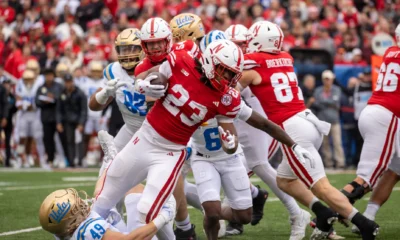

Football
/ 2 months agoHuskers Fight Hard but Fall Short Against UCLA
LINCOLN – The Nebraska Cornhuskers gave it their all on Saturday, with standout efforts...
-
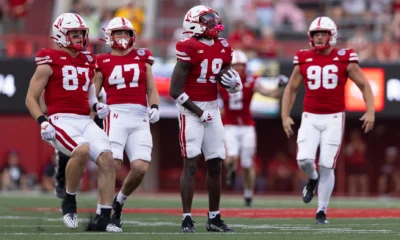

Football
/ 2 months agoGAMEDAY: Nebraska Set to Face Undefeated Indiana in Key Big Ten Showdown
Bloomington, IN – It’s Game Day, Husker Nation! Nebraska (5-1, 2-1 Big Ten) returns...
-
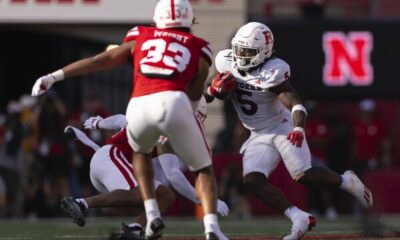

Football
/ 3 months agoBlackshirts Shine as Nebraska Tops Rutgers 14-7 on Homecoming
Lincoln, NE – Nebraska’s Blackshirt defense played a starring role in the Huskers’ 14-7...
By Chris
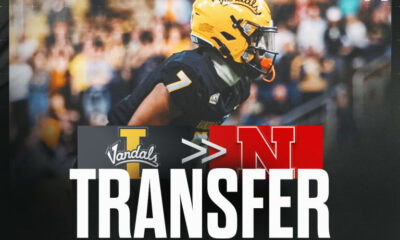

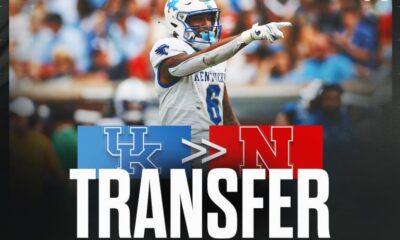

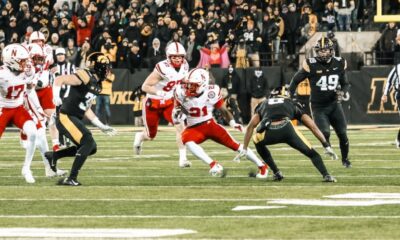

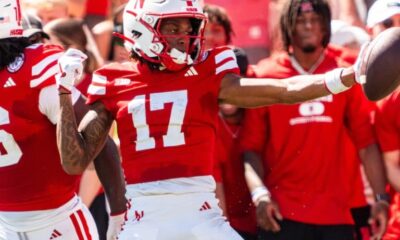

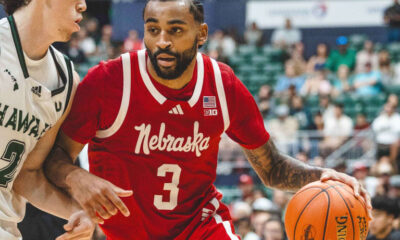

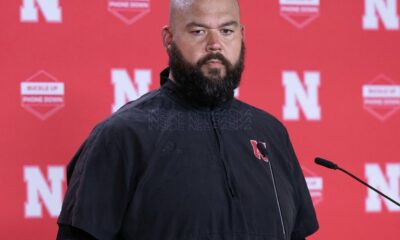

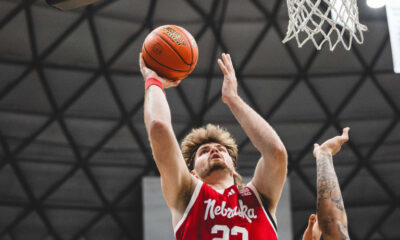

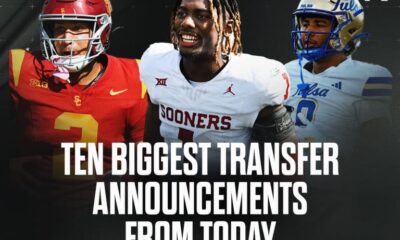

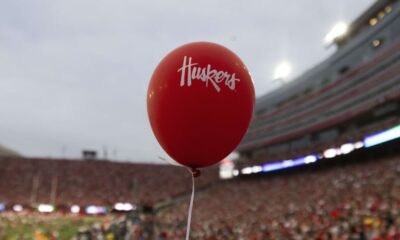




You must be logged in to post a comment Login